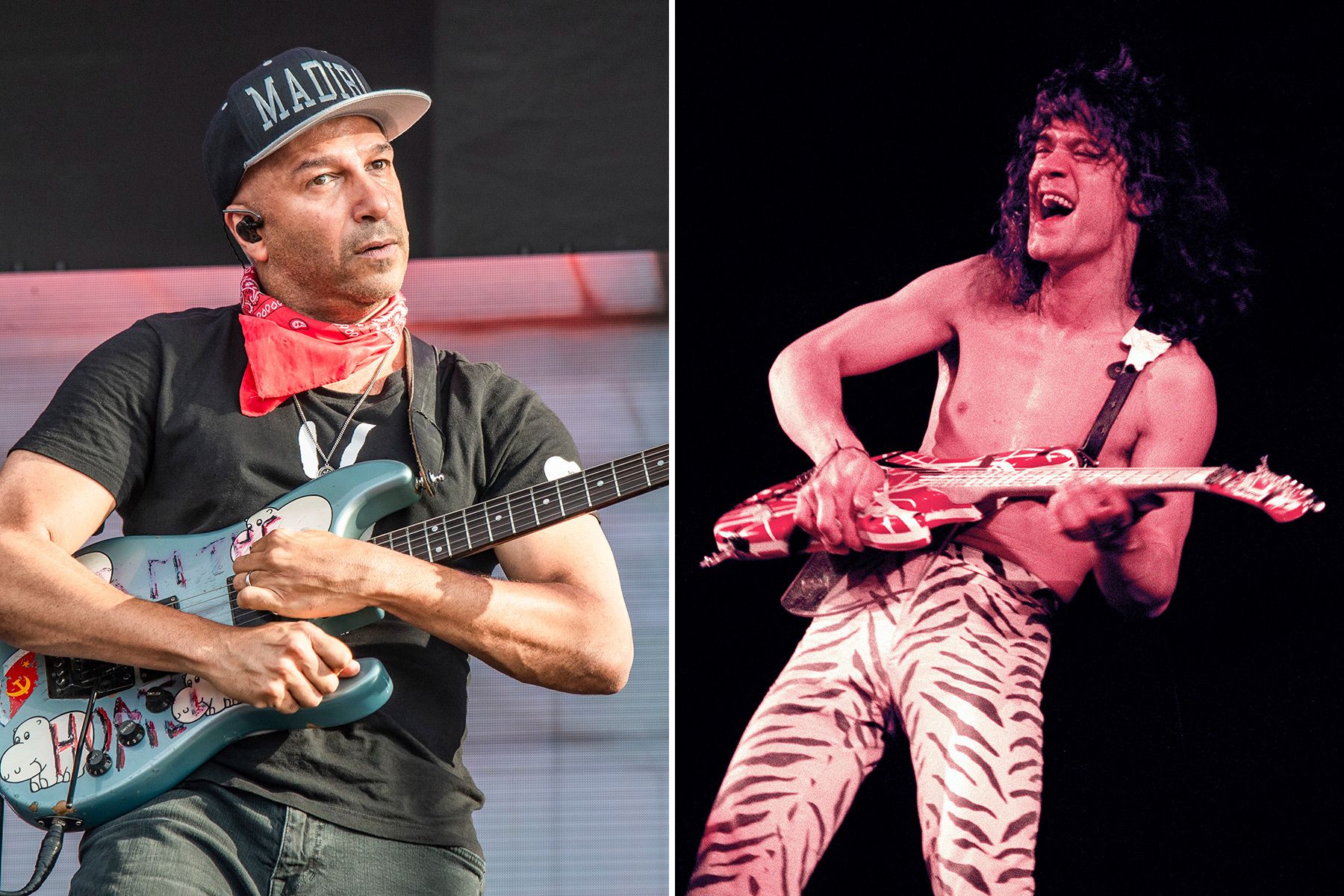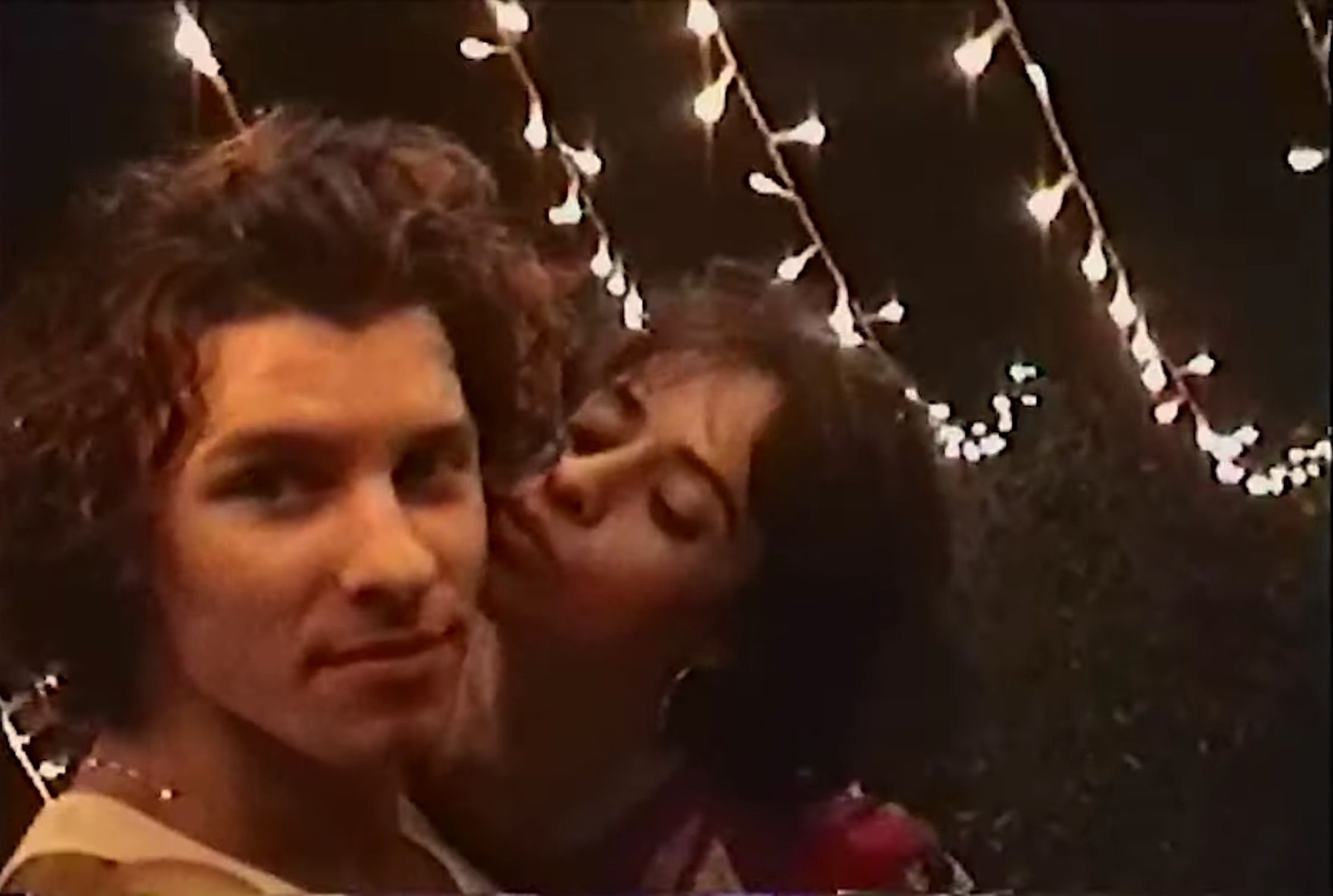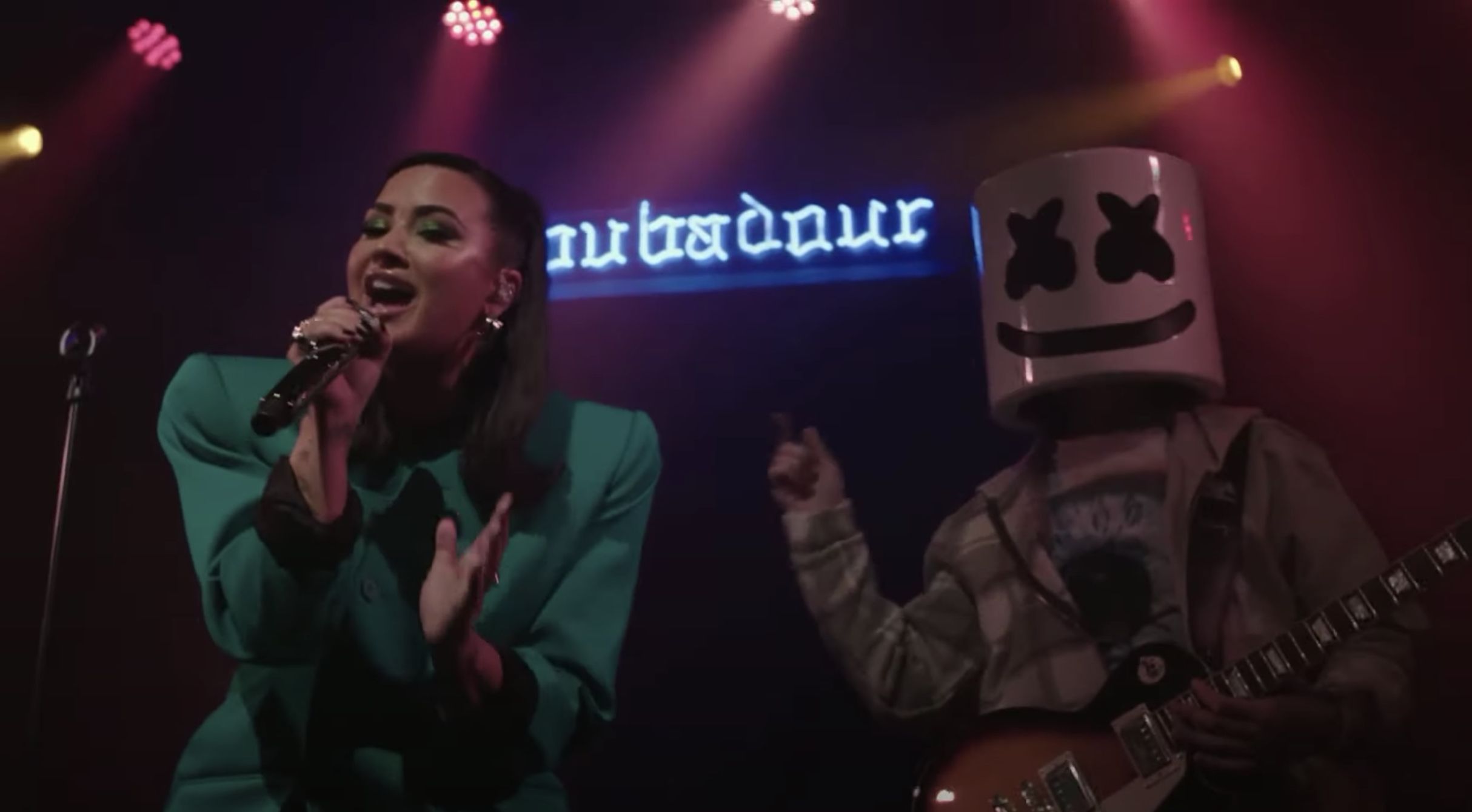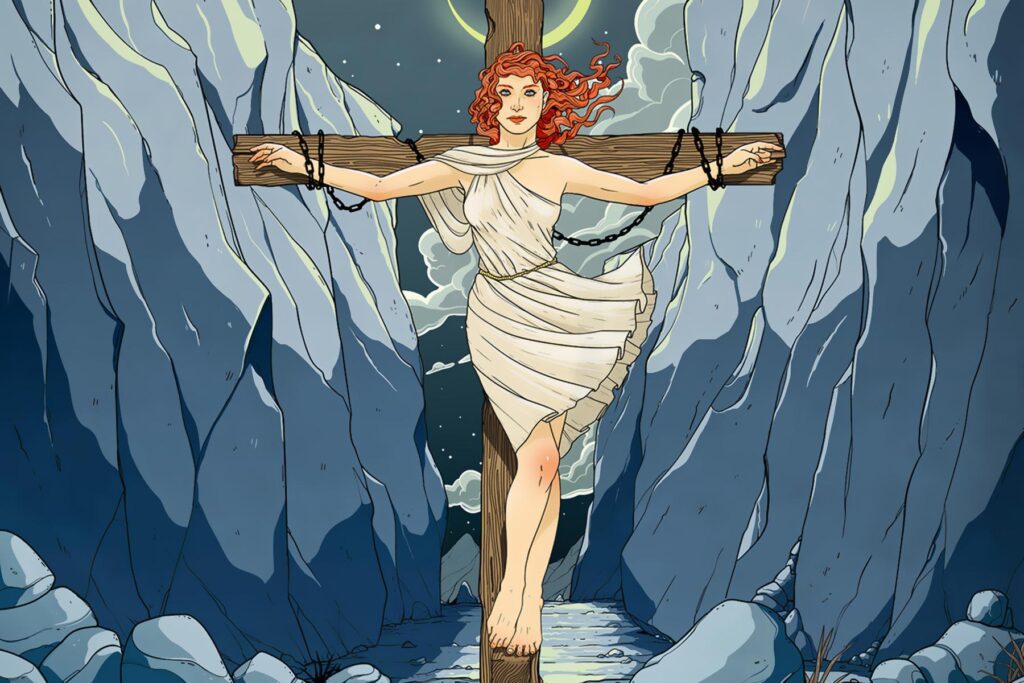
Tom Morello: Eddie Van Halen Was ‘Our Generation’s Mozart’
Tom Morello first heard Eddie Van Halen in high school in Libertyville, Illinois, and he’s long called the guitarist’s band one of his biggest influences: “If aliens came down and challenged us to a battle of the bands to decide the fate of planet earth, I would feel very confident putting early Van Halen forward as our champion,” Morello said in 2013. Here, Morello goes deep on how the late Eddie Van Halen’s playing shaped him, the experience of seeing Van Halen live for the first time, and the emotional experience of sharing the band’s music with his son.
Eddie Van Halen was one of the greatest, most inventive, truly visionary musicians of all time. He was an unparalleled titan in the annals of rock & roll. And on the Mount Rushmore of guitarists, he is neck-and-neck for the pole position.
The way that he reimagined the instrument was a testament to divine inspiration: taking this kind of this cobbled-together, garage-built guitar and turning it into this divining rod of awesome rock & roll power. He was truly inspirational to generations of guitarists. I put myself on the list of people who not only [had] a deepened enjoyment of the genre because of his outstanding unsurpassed musicianship; it was also the way that he destroyed the notion that it had all been done before on the electric guitar. That certainly planted the seed for youngsters like me to begin exploring possibilities on the instrument that were undreamt of before Eddie Van Halen.
The first thing I heard was the debut [Van Halen] record. On Chicago radio, they would play “Running With the Devil,” “Eruption” into “You Really Got Me,” and, you know, there’s no way to describe it — it was otherworldly. There was no YouTube reference to understand: what could even possibly be fucking happening.
Eddie Van Halen was a tremendous improvisor, and created multiple new ways that guitar can sound, but it was that moment of “Eruption” when it really tore asunder the reality of what was possible on the electric guitar. Hendrix was fantastic, and before him [in the Sixties] was a bunch of skiffle bands and a bunch of white blues guitar players. Then that sort of psychedelic beauty and power opened everything up. And there were great, innovative guitarists along the way, but then Eddie Van Halen entered a brand new era. Because most of the people inspired by him … I think Eddie Van Halen once famously said: “With my innovations on the instrument, I’m telling a story. My imitators, when they’re copying me, are telling a joke.” [Laughs] And it kind of felt that way. Whenever you hear someone do finger tapping, it’s kind like, “Well, yeah, somebody else already owns that territory. You might as well just step back.”
The worst words that any band ever heard were Black Sabbath on their 1978 tour with Van Halen opening, when David Lee Roth came offstage after Eddie Van Halen had just destroyed the place to the ground. David Lee Roth came off, looked at Black Sabbath and said, “You’re up next.” [Laughs] The matter had been decided.
I started playing kind of late. Eddie Van Halen gave me a new level of aspiration — one that you couldn’t get to just by plucking your way through the Rolling Stones catalog. It required work! A lot of work. That was very inspirational to me, to put in those hours. I tried to learn some of those Eddie Van Halen solos and whatnot, but the idea that someone had committed that much … it was the kind of dedication to the instrument that a classical musician puts in. It wasn’t just like, “I’m going to sling the guitar low and do drugs and have a haircut.” It really appealed to me that Eddie Van Halen was a musician’s musician of the highest caliber. I was very proud of that, as a fan of rock. That guy could go toe to toe with any musician on the planet: jazz musician, classical musician, with both his improvisational skills and his rock & roll songwriting, and just his swag and his vibe — it was absolutely unparalleled. There were years when he was on the cover of all the guitar magazines. In a 12-month period, he would be on the cover seven or eight of those months because there was no challenger to the throne.
I didn’t see him play live until the 1984 tour when I was in college and responding to the calling that I had to be a guitarist. To see him and the band in the flesh at the hight of their powers … the moment we all waited for was the guitar solo, where for 15 minutes of the night, it was just a clinic in awesomeness. He ran through his countless magical sorcerer-like innovations on the instrument, but all of it was woven together like a spell. It was crazy. He was just out there by himself. Normally, that’s the time of the concert when I’m like, “OK, time to go take a restroom break.” With Eddie Van Halen, everyone was riveted. Because everyone knew we were in the presence of our generation’s Mozart.
I did see him on Van Halen’s last time around, at the Hollywood Bowl. The last time I saw him play, he was right there at the peak of his abilities. And it was so great to see Eddie Van Halen on a Los Angeles night in the hometown where he reimagined what rock & roll, and what electric guitar, could be, playing fucking great — and new fans and people that appreciated him his entire career were able to show love for him.
It’s just such a shattering tragedy. My son, who is nine, is an electric guitar player, a very talented electric guitar player. We just sat down and played through Side One of the first Van Halen record. It was awesome to hear a brand new generation playing along to “You Really Got Me” and “Running With the Devil” — the first songs I heard on the radio. We were listening to “Eruption,” and he said, “Dad, no one can play that.” I said, “Well …” He said, “No, no, no. No one can play that.” And I said, “You’re right, son. No one can play that.”
As told to Patrick Doyle





